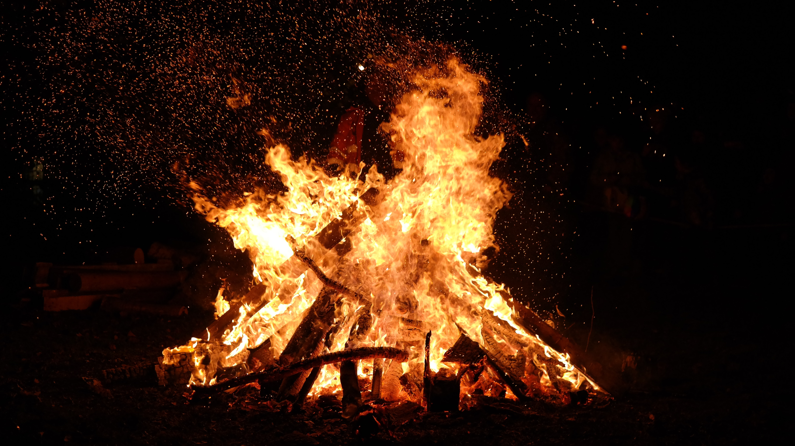Bonfire Night has long been a staple event in the calendar; with fireworks, bonfires, sparklers and many other entertaining elements being used by families, friends and couples alike. Nothing beats the smell of a bonfire and the tasty treats that are usually cooking nearby - but the unfortunate reality is that bonfire night celebrations flood our air with up to 100 times more black carbon particles, otherwise known as soot, than normal. So, what effect are these things having on our air and our environment?
Let’s start with fireworks. Fireworks are made up of a combination of chemicals and explosives, all of which are packed into a tube or shell. When a firework is lit, gunpowder; otherwise known as black powder, is the driving force that propels the firework into the air. Whilst the firework is in mid-air, fuses within the firework’s tube further ignite the gunpowder causing the firework to explode and create that colourful, loud display that we all know and love.

So, what harm does this cause to our air quality?
Upon explosion, fireworks release millions of chemical and gas particles into the air - all of which are blown around by the wind, causing dispersion within miles of the fireworks original explosion site. As well as generating huge concentrations of colourants, explosive, metal elements and fuses, fireworks also release a range of harmful particulate matter (PM) as listed below:
- PM10: coarse particles ranging from 2.5–10 microns in diameter. Eg. dust, pollen and mould
- PM2.5: fine particles ranging from 0.3–2.5 microns in diameter. Eg. particles created as a result of vehicle engine or factory emission combustion
- Ultrafine particles (UFPs): tiny particles smaller than 0.3 microns in diameter. Making up over 90% of all airborne particle pollution, UFPs are by far the most harmful and dangerous PM pollutant
- Volatile organic compounds (VOCs): airborne vapor or gaseous compounds. These are what cause the odours released as result of chemical reactions in combustion, manufacturing, or industrial processes.
Bonfires also cause similar effects on the air quality, as burning wood releases large amounts of harmful compounds such as carbon monoxide, nitrogen oxides, carbon dioxide and many other toxic substances. For large scale events such as fireworks displays, fuel and other liquids are used to ignite and sustain the bonfire and these can further add to the contaminants produced and emitted by the flames.
Carbon dioxide is of course a contributor to global warming as it’s a potent greenhouse gas - so burning bonfires should be limited and managed properly where possible.

Can this type of air pollution have an effect on our health?
Unfortunately, yes - in quite a few ways! From breathing and respiratory problems to headaches, high blood pressure and irregular heartbeats, there are a number of reasons why everybody should remain vigilant at firework displays and bonfire nights. But the good news is, you can reduce the amount of polluted air that you breathe in on and around bonfire night by following these tips:
- Wear a scarf or mask that covers your nose and mouth
- Keep you windows and doors closed to reduce the cross-contamination of inside and outside air
- Purify your indoor air via filtration, to capture those harmful particles
- Use safe alternatives to traditional fireworks
To wrap up (excuse the pun!), who doesn’t love bonfire night! But firework displays and bonfires do affect people’s health and the environment, so we hope that this blog has given a little bit of insight into how we can reduce these effects by getting clued up and being a bit more vigilant. Our parent company, Micro-Mesh also offer a range of air purifying filtration solutions that can help manage and reduce air pollution - find out more at https://www.micro-mesh.co.uk/product/dust-and-fume-extraction-2/

For help and support with finding a filter to suit your needs - no matter what they might be - we’re here to help. Get in touch today at support@filterfinder.co.uk.




